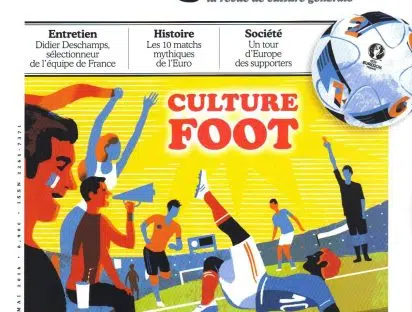
When I came home in the evening I told my wife that whatever she had read in the papers, there was no way of stopping the negative dynamic I had seen in action during these meetings. There was such an amount of accumulated anger, not specifically targeted at the Chirac government, but directly at the European Union, such a deep sense of expropriation of the European project, such a profound disappointment with the EU, that the pro-European organisers of the meetings went quickly out of arguments. Especially as they were only lukewarm themselves about the Treaty. All this disenchantment was sometimes inarticulate, sometimes (in the case of local ATTAC activists, for instance) very well prepared to argue aggressively about details and figures. In both cases, it was sincere and it was based on emotions – on a kind of helpless bitterness and indignation respectively.
I am reminded of these emotions when following the Scottish referendum campaign. For several months, a pragmatic, albeit not enthusiastic ‘NO’ to independence has been considered the inevitable outcome, and now, with only a good week to go before the vote, everybody seems surprised of the momentum of the ‘YES’ campaign.
Having experienced the French 2005 referendum from inside, I’m not. Referendum campaigns, when touching on national identity issues, inevitably reach a tipping-point after which the debate is dominated by irrational and emotional shortcuts. At best, they end up in a certain confusion about the multiple implications of a binary vote to a simplistic question. At worst, they produce a hysterical escalation of wild statements and misinformation from both sides. In both cases, a very large number of voters ends up deciding according to gut feeling, i.e. emotional cues.
The UACES conference in Cork dealt twice with the referendum issue. In the first plenary session, Charley Jeffery described how both sides stubbornly pretended to know exactly what would happen to an independent Scotland with regard to EU membership. All efforts to explain that there was no precedent and no Treaty provision on this issue and that there was therefore no definite answer to the question at this stage went pretty much unheard. If I understood him correctly, the ‘NO’ side kept invoking the threat of a Spanish veto against Scottish membership or a lengthy re-negotiation of accession from ‘the back of the queue’. In France in 2005 this type of menace was perfectly counter-productive: vaguely threatening the other side, against better knowledge, with the consequences of their ‘lack of responsibility’ is the best way in which to provide additional momentum to a part of the electorate already programmed to say ‘Merde!’ to what they perceive as élite finger-wagging.
In the second plenary session, Brigid Laffan drew a different picture with regard to the history of referenda in Ireland, where their repetitive character seems to have created a situation in which such campaigns actually may produce better knowledge about the issue at stake and, as she argued, a sense of ‘ownership of deliberation and decision over a short but intense timeframe’. To me this conclusion on Irish referendum behaviour patterns seems perfectly credible, but very path-dependent. It’s hardly applicable to an electorate like the French one (who would also react very differently to being asked to vote a second time two years later…)
In the Scottish case the issue of EU membership may not be the most salient one of this campaign. But it has probably made a contribution, through being used as a threat by some, to the almost irrepressible dynamic of real or imagined injustice. Nothing is as powerful in a referendum campaign as indignation triggered by feelings of collective humiliation. Once this kind of dignity toothpaste is out of its tube, there is no way of putting it in again.
In 2005, once the whole thing was over, my wife and I agreed that the founding fathers of the newborn German democracy in 1949 had been very wise in refusing, mainly for historical reasons, to incorporate the option of referenda in the constitution of the Federal Republic. Direct democracy is always tempting, but is it worth the risks?
Albrecht Sonntag
EU-Asia Institute at ESSCA School of Management, Angers.




